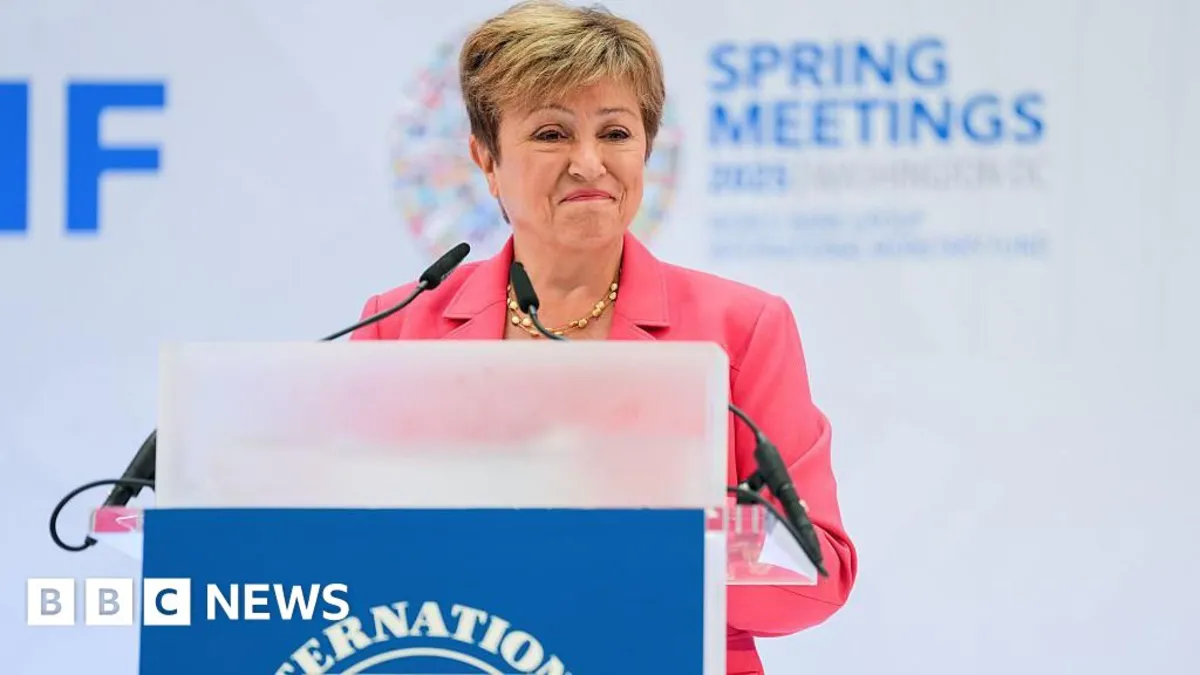
The International Monetary Fund (IMF) has recently addressed the ongoing trade tariff uncertainty, stating that while global share prices have seen significant declines, a worldwide recession is not anticipated. The IMF's latest forecast for the global economy highlights the impact of escalating trade tensions, which have led to a marked erosion of trust among nations. Despite these challenges, the IMF refrains from predicting a global economic downturn, emphasizing that although growth projections may be adjusted downward, a recession is not on the horizon.
The IMF's comments come in the wake of US President Donald Trump's announcement of new tariffs on April 2, known as Liberation Day. Following this announcement, global stock markets experienced a sharp decline, with many indices struggling to recover. For instance, the FTSE 100, which represents the largest firms listed in the UK, is currently 4.6% lower than it was a month ago. This significant drop illustrates the immediate repercussions of the tariffs on global trade and investment sentiment.
Amid this backdrop, fears of a global recession have intensified. Companies are cutting back on spending and investment due to the prevailing uncertainty. Several nations are also responding to Trump's tariffs with retaliatory measures, further complicating the international economic landscape. On Wednesday, the World Trade Organization (WTO) projected a decline in global trade for the year, attributing this downturn to the impact of the tariffs introduced by the United States.
The Bank of England has echoed these concerns, stating that the rising trade tensions have increased the risks to global growth and financial stability. In a related move, the European Central Bank (ECB) announced a reduction in its key interest rate as a response to the escalating trade situation. These actions indicate a growing recognition among financial institutions of the challenges posed by current trade policies.
In stark contrast to the more cautious assessments from other institutions, the IMF's outlook remains relatively optimistic. IMF Managing Director Kristalina Georgieva emphasized the importance of strategic responses to the prevailing uncertainties. "This is a call to respond wisely," she stated, highlighting the potential for a more balanced and resilient world economy. Georgieva urged nations to take proactive measures to stabilize their economies amidst the turbulent trade environment.
She specifically called on European countries to reduce restrictions on internal trade in services and to enhance their single market. Additionally, she suggested that China should bolster its social safety net to decrease precautionary savings, while urging the US government to address its national debt. These measures, according to the IMF, are crucial for fostering a more stable global economic environment.
In conclusion, while the trade tariff uncertainty continues to create challenges for global markets, the IMF's forecast suggests that a coordinated effort among nations could mitigate the risks of a recession, paving the way for a more resilient global economy.